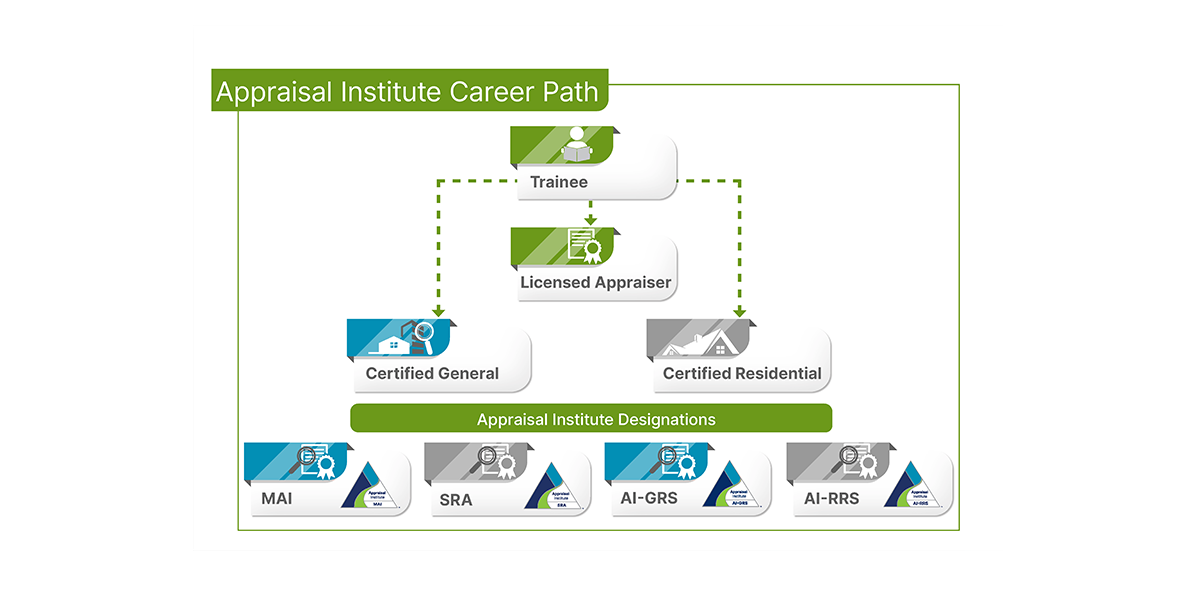Become an Appraiser
Are you ready to become an appraiser? The four levels of appraisal licensing are outlined below.
Requirements vary in each state, so be sure to refer to the requirements in the state where you plan to earn your license. Each state usually has three primary requirements that include education, experience and a state exam.
A few quick definitions before you dig in:
A one-to-four residential unit includes single family homes and buildings with up to four dwellings.
A complex unit has ownership or market conditions that are atypical – for example, a property where the ownership is split among multiple unrelated parties.
Non-complex units encompass everything else.





